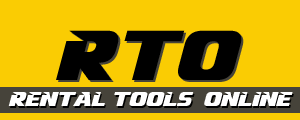Financial Advantages of Renting Tools You May Not Have Thought Of
In today's fast-paced and ever-evolving business landscape, decision-making often hinges on financial prudence and operational efficiency. One such decision that businesses frequently face is whether to rent or buy tools and equipment. While owning tools might seem advantageous at first glance, renting them offers numerous financial benefits that can significantly impact a company's bottom line. This article delves into the financial advantages of renting tools instead of purchasing them, providing insights into why this approach can be a more cost-effective and efficient choice for many businesses.
Cost Efficiency and Flexibility
Lower Initial Investment
One of the most apparent financial benefits of renting tools is the reduced upfront cost. Purchasing tools often requires a substantial initial investment, which can strain a company's cash flow, particularly for small businesses or startups with limited capital. In contrast, renting eliminates the need for significant upfront expenditures, allowing businesses to allocate their financial resources more strategically across other critical areas of operation.
Enhanced Budgeting and Cash Flow Management
Renting tools contributes to more predictable and manageable cash flow. Businesses can plan their budgets more accurately, as rental costs are generally fixed and recurring, unlike the unpredictable expenses associated with owning tools, such as repairs, maintenance, and depreciation. This predictability can be crucial for businesses seeking to maintain healthy cash flow and ensure long-term financial stability.
Flexibility in Tool Usage
Renting provides the flexibility to access a wide range of tools without the burden of long-term ownership. This flexibility is particularly beneficial for businesses with fluctuating project demands or those operating in industries where technology and equipment are rapidly evolving. Renting enables businesses to quickly adapt to changing needs and leverage the latest tools without the financial risk of obsolescence.
Maintenance and Depreciation Cost Savings
Elimination of Maintenance Responsibilities
Owning tools comes with the responsibility of maintaining and repairing them, which can be both time-consuming and costly. When renting, the responsibility for maintenance and repairs typically falls on the rental provider, alleviating businesses of these burdens. This not only reduces maintenance-related expenses but also ensures that tools are always in optimal working condition, minimizing downtime and enhancing productivity.
Avoidance of Depreciation Losses
Tools and equipment inevitably depreciate over time, diminishing their value and potential resale price. Renting tools circumvents the financial losses associated with depreciation, as businesses are not tied to the long-term ownership of assets that lose value. This can be particularly advantageous for businesses that require specialized tools for short-term projects, as they can rent the necessary equipment without worrying about its declining value.
Access to High-Quality and Specialized Equipment
Access to Cutting-Edge Technology
In industries where technology is continually advancing, owning tools can quickly become a disadvantage if equipment becomes outdated. Renting provides access to the latest technology and high-quality tools without the need for frequent upgrades or replacements. This access can enhance the quality of work, improve efficiency, and provide a competitive edge in the market.
Availability of Specialized Tools
Some projects require specialized tools that may not be used frequently enough to justify their purchase. Renting allows businesses to access these specialized tools on an as-needed basis, avoiding the financial burden of owning rarely used equipment. This approach ensures that businesses have the right tools for each job without incurring unnecessary costs.
Operational and Logistical Advantages
Simplified Inventory Management
Renting tools simplifies inventory management by reducing the number of assets a business needs to track and maintain. This reduction in inventory can lead to lower storage costs and decreased administrative overhead, freeing up resources and allowing businesses to focus on core operations.
Scalability and Project-Specific Needs
Renting tools provides the scalability needed to meet project-specific demands. Businesses can quickly increase or decrease their tool inventory based on project requirements, ensuring they have the necessary resources without the long-term commitment of ownership. This scalability is particularly advantageous for businesses with seasonal or cyclical workloads, as it allows them to optimize their operations without incurring unnecessary costs.
Environmental and Sustainability Considerations
Reduced Environmental Impact
Renting tools can contribute to more sustainable business practices by reducing the overall demand for new equipment production. By sharing tools and equipment, rental services help minimize the consumption of raw materials and energy required to manufacture new tools, leading to a smaller environmental footprint. This approach aligns with the growing emphasis on sustainability and corporate social responsibility in today's business world.
Encouragement of Resource Efficiency
The rental model encourages businesses to be more resource-efficient by promoting the use of shared equipment. This efficiency not only has financial benefits but also supports broader environmental goals by reducing waste and promoting the circular economy. Businesses that prioritize sustainability can enhance their reputation and appeal to environmentally conscious consumers and partners.
Conclusion
Renting tools instead of buying them offers a multitude of financial benefits that can enhance a business's operational efficiency and financial health. By reducing upfront costs, eliminating maintenance and depreciation expenses, and providing access to the latest technology and specialized equipment, renting allows businesses to optimize their resources and focus on their core competencies. Additionally, the operational and environmental advantages of renting align with modern business practices that prioritize flexibility, sustainability, and efficiency. For businesses seeking to maximize their financial management and operational capabilities, renting tools presents a compelling and advantageous alternative to ownership.





